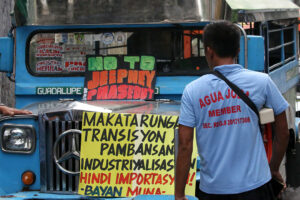SC asked to reverse ruling on anti-terror law

HUMAN RIGHTS lawyers have asked the Supreme Court (SC) to reconsider its decision upholding the constitutionality of questioned provisions of the anti-terrorism law passed in 2020.
In a joint 71-page motion, the lawyers who earlier filed separate petitions reiterated that certain provisions of the law will “impermissibly infringe upon protected freedoms, usurp judicial powers, and deprive liberty and property without due process.”
“All the foregoing, we plead as one the Honorable Court — without prejudice to the submission of separate or supplemental motions or pleadings by respective Petitioners — to revisit and to take an even closer look, particularly on the critical questions and issues of a perfidious legislation that transgresses the Constitution and terrifies, torments and terrorizes its own people,” they said.
The petitioners criticized the third instance of membership to a terrorist organization specified by the law, which punishes an individual who would voluntarily join any group “organized for the purpose of engaging in terrorism” found in Section 10 of the law.
They said this classification was unconstitutional because it was too vague and broad of a parameter.
The country’s High Court, by a vote of 9-6, had previously declared this section as not unconstitutional.
On the other hand, the Supreme Court, voting 12-3 in a case hearing last December, declared as unlawful a provision in the anti-terrorism law stating that a protest could be considered terrorism if it is intended to cause death or physical harm, to endanger a person’s life, or to create a serious public safety risk.
Republic Act No. 11479 or the Anti-Terrorism Act of 2020 repealed the 2007 human security act.
“This law has deadly consequences as it has red-tagged and has targeted indigenous groups,” Antonio M. La Viña, Dean of the Ateneo School of Government and one of the lawyers who filed the motion, said in a press briefing on Wednesday.
Mr. La Viña cited one of his clients, who was a volunteer teacher for an indigenous community, had recently been killed along with four other people who were allegedly tagged as communists by the military.
Neri J. Colmenares, senatorial candidate and one of the petitioners, said that the Philippines does not need the law since the country already has existing measures to combat what the government may classify as terrorist threats.
The country’s Anti-Money Laundering Council has said that the law is crucial to efforts in countering “dirty money” and terrorism financing. — John Victor D. Ordoñez




